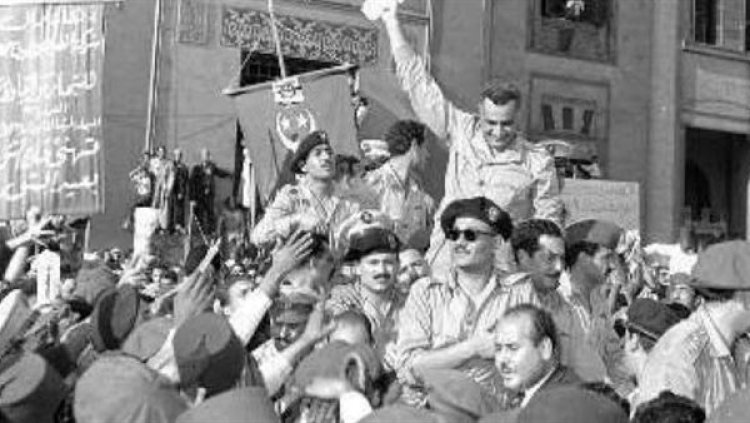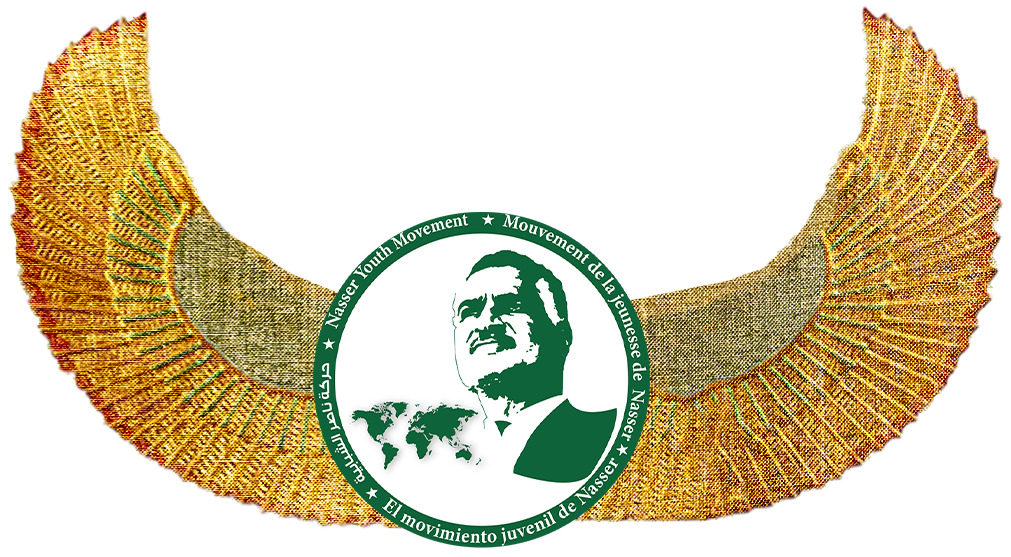July 23 Revolution .... The Establishment of the First Republic

By: Zainab Mekky
Egypt celebrates every year the anniversary of the glorious July 23 revolution, and it bears all love and gratitude to its army, and continues its development path for the sake of the nation’s elevation.
The July 23 Revolution is considered a turning point in the history of the nation because of the great, unparalleled achievements it brought about in several fields. (Political, cultural, educational, economic and social) The revolution's achievements were not limited to those areas only, but also made unforgettable achievements at the Arab and international levels. The most important of these achievements was the proclamation of the republican system and the appointment of Major General Muhammad Naguib as the first president of the Egyptian Republic on June 18, 1953.
However, before talking about these achievements, it is necessary to identify the nature of the revolution and address the reasons for its establishment and its most important principles: The July Revolution is the will of the people carried out by army officer leaders who were called the Free Officers, for several reasons: the poor economic conditions of the country and the absence of social justice, as the naval and military schools were closed, in addition to the poor political conditions and governance that were represented by the king and his entourage’s foolishness and the king’s continued ignoring of the majority and his siding with the minority parties.
The most important reason is that the Palestine war broke out without proper preparation, so the defeat was complete and Palestine was lost amidst the corrupt weapons.
These reasons led to the establishment of the Free Officers Group in the Egyptian army under the leadership of Gamal Abdel Nasser under six principles that were the mainstay of the policy of the revolution, which is the elimination of the system of feudalism, capital and colonialism, building a sound democratic life, building a strong national army, and social justice.
The revolution broke out and resulted in unparalleled achievements in many fields, some of which can be briefly mentioned. In the political field, the Suez Canal was nationalized, the evacuation agreement was signed for an occupation that lasted for more than seventy years, and control over the rule of Egypt after the fall of the monarchy and forcing King Farouk to abdicate the throne, and the monarchy was abolished, which led to the establishment of the republican system. In the educational field, the achievements were represented in the establishment of research centers and the construction of ten universities instead of only three, and the approval of free public and higher education, in addition to doubling the higher education budget, The cultural side at that time also received abundant luck from the revolution’s achievements. An academy was established that included institutes for theatres, cinema, ballet and music, and work to sponsor antiquities and museums. Films were also produced based on stories of authentic Egyptian literature.
With regard to the economic and social achievements, the revolution is considered as the golden age of the working class, which at the time was called the downtrodden class due to what it suffered from for years of injustice and lack of justice, The revolution resulted in its social orientation and its elimination of the feudal system, the abolition of social classes among the Egyptian people, and the elimination of capitalism and its control over the agricultural and industrial field.
The achievements of the revolution at the Arab level were represented in uniting Arab efforts towards liberation movements. It also established an Arab experience in unity between Egypt and Syria, in February 1958, in addition to concluding a tripartite agreement between Egypt, Saudi Arabia and Syria, after which Yemen joined. It also contributed to the independence of Kuwait and the defense of Somalia's right to self-determination, and supported the liberation movement in Tutus and Morocco until it gained independence.
Among the advantages of this revolution over others is that it was a white revolution, that is, there was no bloodshed in it, and it also brought about a new generation of officers and youth led by Gamal Abdel Nasser. The July Revolution was not just a revolution, but rather it was a living example of the cohesion of the people and the army under one goal, which is reform., It was a title for restoring the dignity of the country and the homeland, upholding the interest of the country, achieving its independence, self-determination, and the direction for the better.

